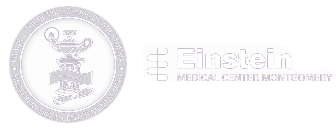DNP in Anesthesia OVERVIEW
Pending approval from the Council of Accreditation of Nurse Anesthesia Educational Programs, the Frank J. Tornetta School of Anesthesia at Einstein Medical Center Montgomery in partnership with La Salle University School of Nursing and Health Sciences will offer a DNP curriculum that will prepare graduates for the full scope of nurse anesthesia practice in a variety of settings.
Credits to Completion
86 credit course of study with a minimum of 2,750 clinical hours will be taken throughout the Didactic Phase and Clinical Phase of the Program (See Plan of Study outlined below). The curriculum is divided into an initial Didactic Phase for 7 semesters, followed by a 6 semester Clinical Residency Phase, which continues to include a didactic courses of study in conjunction with relevant anesthesia clinically relevant experience.
Program Outcome Measures
View program outcome measures (pdf) for the Frank J. Tornetta School of Anesthesia at Einstein Medical Center Montgomery in partnership with La Salle University School of Nursing and Health Sciences. In addition to the terminal outcome measures historically reviewed by the Frank J. Tornetta School of Anesthesia, graduates earning the Doctor of Nursing Practice degree will meet the expectations of the Council of Accreditation of Nurse Anesthesia Educational Programs (COA) DNP Graduate Standards.
Sample Curriculum
Post Baccalaureate to DNP Curriculum – One Page Overview (pdf)
Plan of Study
Didactic Phase – The curriculum begins with a didactics only phase which extends from Fall, 2018 through Fall, 2020. During this time many of the DNP core and scientific foundation courses are taken, providing the underpinnings for, and introduction to, the specialized anesthesia curriculum that follows. There are 11 courses (31 credits) in the didactic phase that will be available in a distance format. Students will also be required to participate in three (2 day) immersions during the didactic phase.
Clinical Phase – The final 24 months of the curriculum begins an intense focus on clinical application of the extensive didactic foundation previously established. The six clinical courses require a minimum of 2750 hours of nurse anesthesia residency. Didactic courses continue as compliments to the clinical practicum. The DNP scholarly project is developed and implemented during this clinical phase.
Admission Criteria
Each applicant is considered on an individual basis according to the following requirements:
- Bachelor of Science in Nursing degree (BSN) from a nationally accredited program
- Current unencumbered United States RN License
- Resume or Curriculum Vitae
- Cumulative Bachelor of Science in Nursing GPA minimum 3.2 on a 4.0 scale
- Graduate Record Exam (GRE) recommended on an individual basis
- Two letters of recommendation; one recent academic reference and one reference should be directly related to professional practice. Nurse anesthesia track students require a third letter of recommendation from their direct supervisor.
- Personal statement describing an opportunity for quality improvement or evidence-based change in the applicant’s practice setting. The essay should link the improvement ideas with achievement of the applicant’s personal career goals of pursuing a career in nurse anesthesia.
- Interview by Frank J. Tornetta School of Anesthesia Admissions Committee and DNP Program Director
- Completed application form
- Official transcripts of all previous college work
- Application Fee
- BLS, ACLS, PALS
Financial Aid Information
Guaranteed Student Loan Program: The Guaranteed Student Loan Program is provided through the Financial Aid Office at La Salle University. For additional information please contact Jennifer Housemann at La Salle University Financial Aid Office at 215-951-1381.
Tuition and Fees
View program tuition and fees (pdf)
Deadline to Apply
Application files are reviewed and processed as they are received by the program. Student interviews are scheduled on a ‘rolling admission basis’ as application files are completed and processed. Rolling admission means that completed applications are reviewed on an ongoing basis, not after a set deadline. This also means that applications are accepted until the class reaches capacity. A rolling admission policy encourages early submission of application.

